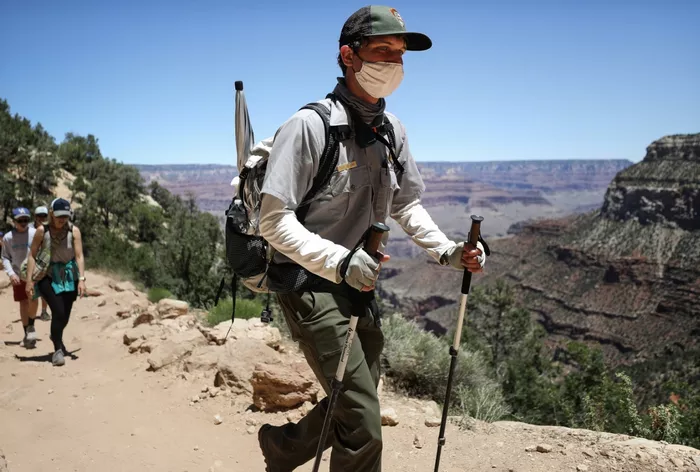Rescue teams in the Valley have faced a busy week, with four hikers needing assistance on Camelback Mountain on June 9—a common occurrence during the summer months. This year, however, rescuers have introduced new tools to help save lives more effectively.
Camelback Mountain remains a popular destination for tourists, but park officials stress that the hike is not suitable for everyone, especially those who are unprepared for the challenging conditions. Cody Huggins, a park ranger supervisor frequently stationed at the Echo Canyon Trail entrance, reminds hikers of the trail’s difficulty and the dangers posed by the summer heat. On June 10, as temperatures soared into the triple digits, Huggins warned hikers to carry plenty of water and be ready for the strenuous climb, emphasizing that although the trail is just over a mile to the summit, it is far from an easy walk.
Throughout the day, a park ranger is always present at the trailhead, playing a vital role in educating visitors and providing immediate assistance if needed. These rangers often arrive first at rescue scenes, underscoring the importance of their presence during peak hiking season.
To improve response times for heat-related emergencies, the city of Phoenix has installed ice chests at the base of both Piestewa Peak and Camelback Mountain. These supplies allow firefighters to cool overheated hikers more rapidly by targeting critical areas of the body, speeding up recovery times and improving outcomes. Huggins highlighted the significance of quick cooling, explaining that it can make all the difference in a patient’s recovery.
Despite these efforts, prevention remains key. Park rangers work to persuade hikers to take personal responsibility for their safety by being cautious and well-prepared for the harsh conditions. Hiker Scott Koren echoed this sentiment, acknowledging that while many incidents can be avoided, unforeseen events do occur, making it essential for parks to be ready to respond swiftly and effectively.
Adding to the emergency response infrastructure, Camelback Mountain is equipped with three helicopter landing pads. These pads enable firefighters to reach patients more quickly depending on their location along the trail, further enhancing rescue operations during the intense summer hiking season.
Related Topics
- Decathlon Launches “No Tent Left Behind” Campaign with Full Refunds to Tackle Tent Waste
- Popular Cape Town Hiking Trails Set to Reopen Soon After Fire Damage
- Leicestershire Camping Site Set for Major Expansion with New Pitches and Play Area

